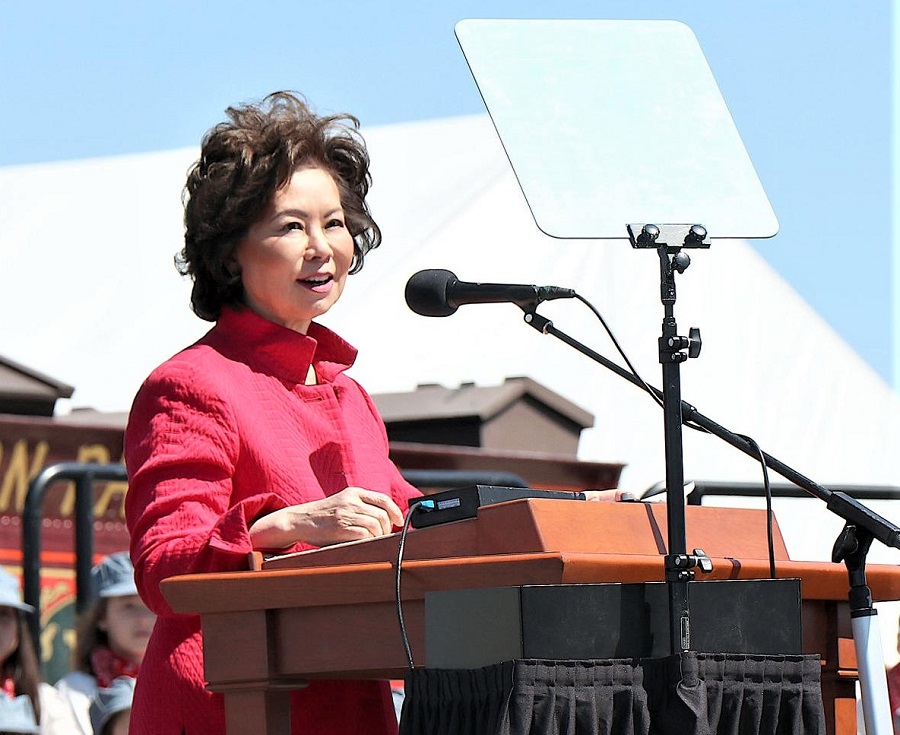May 10, 2019
One hundred fifty years ago, the first transcontinental railroad in the United States was completed, and our Nation was changed forever. On May 10, 1869, the final golden spike was driven into the ground at Promontory Summit, Utah, joining the tracks of the Central Pacific and Union Pacific railroads. This unbroken rail line of nearly 2,000 miles from Omaha, Nebraska, to Sacramento, California, connected the existing eastern rail network to the western states and territories, enabling passengers and goods to travel from coast to coast more economically and in as little as a week.

Secretary Chao speaks at celebration of 150th anniversary of Golden Spike in Utah.
Our Nation celebrates the thousands of workers who diligently laid track for six years across desolate plains and treacherous mountains. We honor the undaunted efforts of the people who made this innovation possible, including workers of Irish and Chinese descent, as well as freed slaves, Native Americans, Civil War veterans, and Latter-day Saints. Roughly 12,000 workers of Chinese ancestry worked to dig out a particularly challenging section. Through blizzards and other treacherous weather, they blasted and chiseled 15 tunnels through the hard granite of the Sierra Nevada Mountains.
We also honor our former leaders who had the vision and understanding that a robust infrastructure supports a vibrant economy. In the years that followed, this tremendous engineering feat helped revolutionize interstate travel and commerce. The completion of the transcontinental railroad catalyzed our country’s development, empowered greater settlement of the American West, and expanded prosperity from the Atlantic to the Pacific.
On this sesquicentennial celebration, we recognize the American ingenuity and the hard work and grit of all the workers that made the construction of this railroad and the unification of our Nation possible.